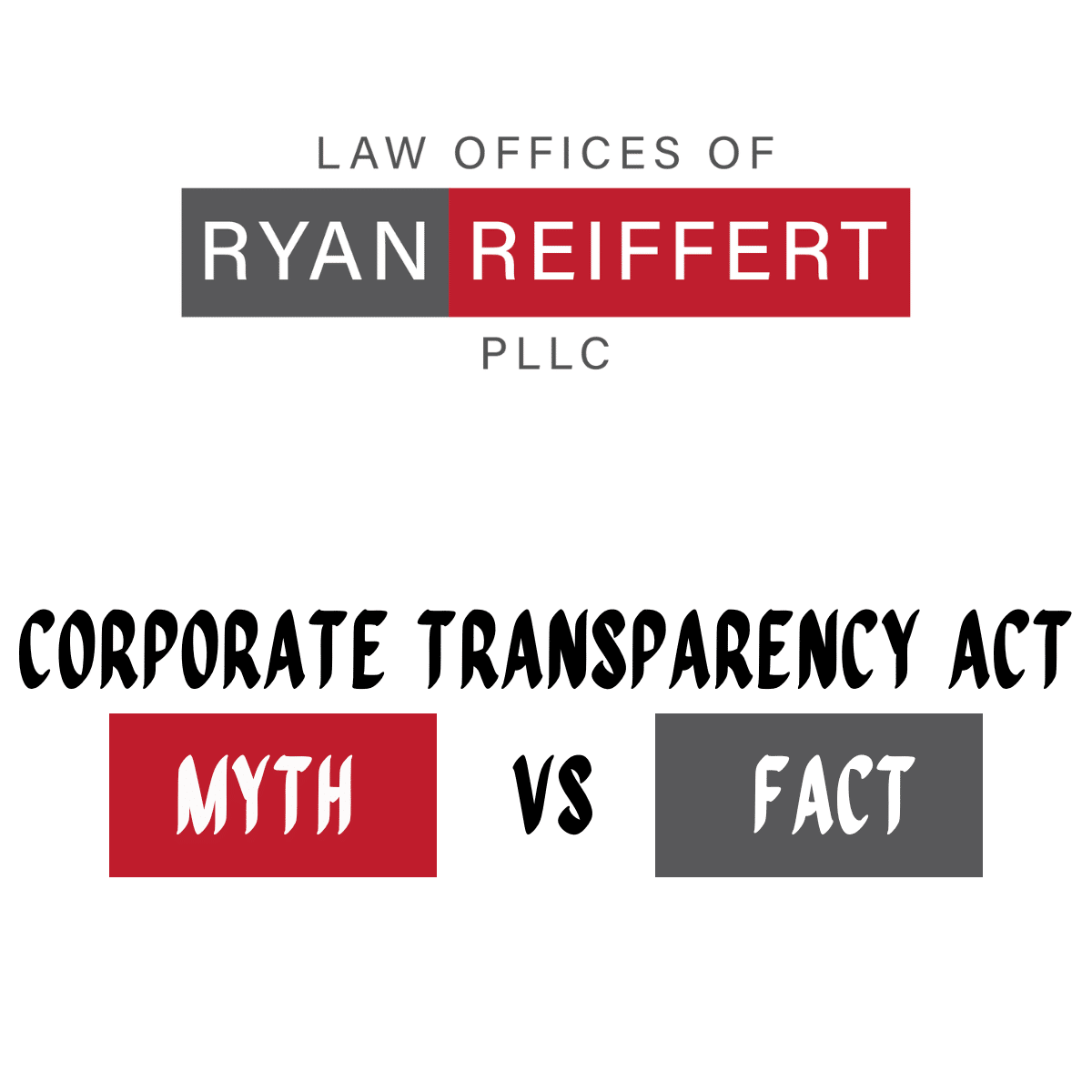Debunking the Top 4 Myths About the Corporate Transparency Act

In a few previous posts, we discussed the Corporate Transparency Act (or CTA).
The first article in the series was an overview of the CTA, including its purpose, history, and so forth. In short, the CTA is a piece of anti-moneylaundering and anti-financial crimes legislation that is coming into force in 2024/2025, and will require the disclosure of
MYTH 1: I saw on Instagram that my LLC will cost $500 per day starting in January 2024. Should I just get rid of my LLC?
ANSWER: This one is MOSTLY FALSE, but with a kernel of truth. Let’s start with the kernel of truth. The CTA does carry a potential $500 per day penalty for noncompliance (plus worse criminal penalties). However, the way in which this information is presented (I’ve seen a lot of bad advice on social media to the effect of “YOUR LLC IS GOING TO COST YOU $500 PER DAY STARTING RIGHT NOW!!!”) is highly misleading.
First of all, compliance with the CTA is pretty easy. You are required to make (and keeep up-to-date) a Beneficial Ownership Information (or “BOI”) filing with the Financial Crimes Enforcement Network (FinCEN), a subsidiary of the U.S. Department of the Treasury focused on financial crimes such as money laundering and terrorist financing. It’s a pretty straightforward process and you can see an overview here.
Second, not all entities are subject to the same rules (which includes not only LLCs, but also Limited Partnerships and Corporations). Entities formed prior to January 1, 2024, must comply with the CTA by January 1, 2025. So, this potential penalty is quite a ways off for entities that existed before January 2024.
Third, even for entities formed after January 1, 2024, the compliance deadline is 90 days from formation (dropping down to 30 days from January 1, 2025
MYTH 2: I heard that now LLCs/Corporations will no longer be private, and anyone can read or search my CTA report.How can I stay anonymous?
ANSWER: This one is also MOSTLY FALSE. But again, there is a kernel of truth, so let’s start with that.
It is true that compliance with the CTA will require you to disclose, and keep up to date, the beneficial owners of your entity (or entities). The BOI filing must be made with FinCEN and law enforcement agencies can search the filings under certain circumstances. But only law enforcement can search those filings. The BOI reports are not shared with the general public! So, while you are disclosing the information and you’re not anonymous to law enforcement, you may still have a great deal of anonymity with regard to the general public.
As a result, if your main concern is anonymity from potential “litigation lottery” plaintiffs or nosy neighbors, the CTA should not overly concern you. On the other hand, if your main concern has to do with anonymity from money laundering enforcement agencies… well… we know some good criminal defense attorneys we’d be happy to put you in touch with!
MYTH 3: I heard the CTA applies to ALL Corporations and LLCs. Is that true?
ANSWER: This myth is FALSE. The CTA actually provides for a number of exceptions from registration. For example, large companies, banks, CPA firms, investment fund advisers, and similar companies are exempt from registration. You can read about CTA exemptions in more depth here.
MYTH 4: My LLC is just a single-member entity, and my friend told me that the CTA only applies to large corporations. I don’t have to file, right?
ANSWER: This one is definitely FALSE. All entities filed with a state, tribe, or foreign country etc. permitted to do business in the United States are reporting companies under the CTA, unless they fall under one of the exemptions.
I can certainly understand the thinking behind this myth. After all, numerous U.S. business laws and regulations only apply to larger companies – from Sarbanes-Oxley to the Securities Act of 1933 to Obamacare to various employment laws. However, the CTA is unlike those laws in that the CTA was specifically intended to target small and single member entities that are often used to hide the identity of individuals doing things that are… not quite legal.
Conclusion
If you need help making your CTA filing, contact us. We’ll be happy to get a BOI filed on your behalf and keep you on the road to compliance.
Contact Us
The attorney responsible for this site for compliance purposes is Ryan G. Reiffert.
Unless otherwise indicated, lawyers listed on this website are not certified by the Texas Board of Legal Specialization.
Copyright © Law Offices of Ryan Reiffert, PLLC. All Rights Reserved.